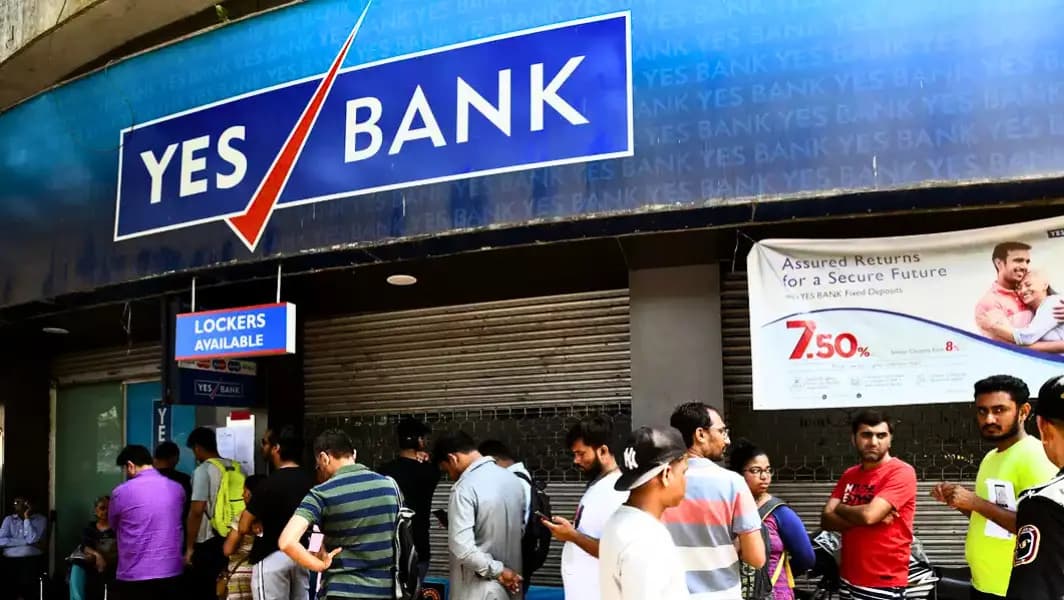
Yes Bank Faces ₹144 Crore Demand Following Tribunal Order
A Legal Setback as Tribunal Orders Payment in Pending Dispute
In a significant development, Yes Bank is facing a demand of ₹144 crore after a recent ruling by the National Company Law Tribunal (NCLT). The tribunal has ordered the bank to pay the amount in a case involving loan defaults and disputed financial claims. This ruling could have serious implications for the bank’s financial standing and its ability to recover from the legal challenges it has been grappling with in recent months.
Background of the Case
The case revolves around a dispute over loan repayment involving Yes Bank and a group of companies. The companies had taken loans from the bank, but due to defaults in repayment, the matter was taken up before the National Company Law Tribunal (NCLT). The tribunal examined the case and ruled in favor of the claimant, ordering Yes Bank to pay ₹144 crore in outstanding amounts.
This decision comes at a time when Yes Bank has been working to stabilize its finances following a period of financial instability, including a series of debt restructurings and efforts to recover from the financial crisis that hit the bank in recent years.
The Impact of the Tribunal Order
The ₹144 crore demand is expected to put additional pressure on Yes Bank’s financial resources, especially as it attempts to rebuild its reputation and strengthen its balance sheet. The ruling could also affect the bank’s ability to attract investors or secure funding in the near term.
However, Yes Bank is likely to contest the decision in a higher court, challenging the tribunal’s findings and seeking a reduction in the amount it is required to pay. The outcome of this case could have far-reaching implications, both for the bank and for the broader Indian banking sector.
Legal Implications for Yes Bank
The tribunal order adds another layer of complexity to Yes Bank’s ongoing legal battles. In addition to this particular dispute, the bank has faced scrutiny in various matters related to its operations, governance, and management decisions. The ₹144 crore demand could further strain the bank’s relationship with regulatory bodies and could lead to an extended legal process.
Legal experts suggest that Yes Bank’s legal team may look for ways to negotiate a settlement with the claimant or explore options for appealing the decision. However, the lengthy legal process could drag on, and until the matter is resolved, the uncertainty surrounding the bank’s financial obligations will likely persist.
Broader Implications for Indian Banking Sector
This case highlights the increasing pressure on banks to maintain compliance with financial regulations and settle disputes promptly. With a growing number of loan defaults and financial claims being contested, Indian banks may need to be more cautious in their lending practices and risk management strategies.
As the Indian banking sector continues to recover from recent challenges, including the banking crisis and a rise in non-performing assets (NPAs), the outcome of cases like this could shape future regulatory actions and banking policies. The tribunal’s ruling also underscores the need for robust legal frameworks to handle disputes effectively and ensure that financial institutions comply with the law.
Yes Bank's Path Forward
In the wake of the tribunal’s order, Yes Bank is expected to evaluate its financial position and legal options. The bank may seek to negotiate a settlement or contest the ruling, depending on its strategic priorities. Additionally, the bank will need to focus on restoring its financial health and ensuring that such legal hurdles do not derail its long-term recovery.
The ₹144 crore demand represents only one aspect of Yes Bank’s ongoing efforts to resolve its legal challenges, but it underscores the larger issue of how financial institutions must navigate legal and regulatory challenges in an increasingly complex financial landscape.
Conclusion
The ₹144 crore demand against Yes Bank, following the tribunal's ruling, adds to the bank's mounting challenges as it continues to recover from its financial crisis. This case serves as a reminder of the risks faced by banks and other financial institutions in India, especially when it comes to loan defaults, disputed claims, and legal proceedings. How Yes Bank handles this setback, whether through legal appeals or settlements, will likely have significant implications for its future prospects and for the broader Indian banking industry.
For any enquiries or information, contact info@thelawreporters.com or call us on +971 52 644 3004. Follow The Law Reporters on WhatsApp Channels